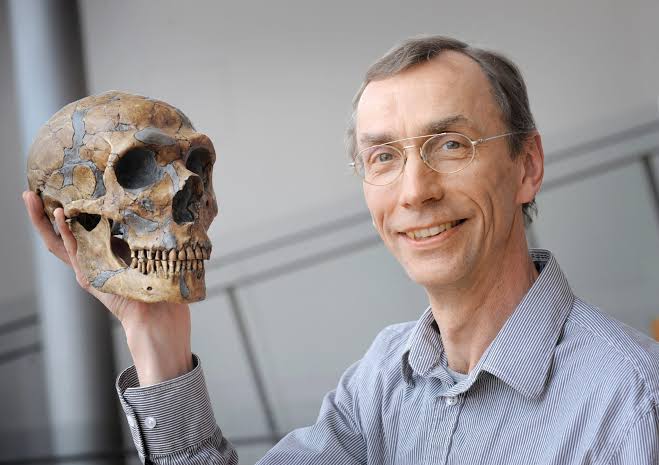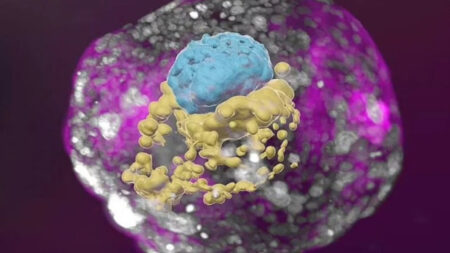Svante Pääbo was awarded the Nobel Peace Prize for his “discoveries relating the genomes of extinct hominins and human evolution,” as stated by the Nobel Prize committee.
Svante Pääbo of Sweden, a geneticist, won the Nobel Prize in Physiology or Medicine in 2022.The Nobel Prize in Medicine is awarded annually by the Nobel Assembly at Sweden’s Karolinska Institute and is considered the highest honour in the scientific community. It is worth 10,000,000 SEK (Swedish crowns).
On Monday, in Stockholm, the Royal Swedish Academy of Sciences announced the winners of the prize.
Details of his study:

Dr. Pääbo’s research has contributed to the emergence of a new scientific discipline called paleogenomics, which focuses on the study and analysis of genes from extinct organisms.
The ground-breaking research conducted by Svante Pääbo made the sequencing of the DNA of the Neanderthal, an extinct relative of contemporary humans, possible.
Along with this, he made the shocking discovery of a previously unknown hominid named Denisova. Pääbo’s discovery that gene transmission happened between these ancient hominins and modern humans after the latter left Africa some 70,000 years ago is a major find.
This discovery is crucial because it provides evidence of gene transfer.The transmission of these ancient genes to modern humans has had physiological effects that are still felt today.
The subject of whether or not modern humans are descended from earlier, now-extinct hominins has fascinated scholars for decades. Understanding human evolution needs proficiency in both palaeontology and archaeology.
The advancement of DNA analysis tools has allowed for more precise studies of our family tree.
However, it was long debated whether or not the study of ancient DNA from extinct hominin forms would ever be conceivable due to the significant technological obstacles created by the degradation of DNA over the duration of tens of thousands of years and contamination by bacteria and modern humans.
To successfully acquire the genome sequence of our closest extinct relative, the Neanderthal, Svante Pääbo made substantial technological improvements that led to the adoption of new, high standards in this difficult sector.
Next, he made the equally shocking discovery of the Denisova, another species of hominid long thought to be extinct. This finding relied heavily on genomic information taken from a tiny piece of finger bone.

This study by Svante Pääbo adds to the growing body of evidence that modern humans have ancient DNA because of interbreeding with Neanderthals and Denisovans during periods when all three species coexisted.
It has already been shown that there are notable examples of ancient gene mutations that affect the physiology of modern people, and this is in a field of study that is currently seeing a significant deal of effort.
Pääbo’s discovery provided a fresh look into our evolutionary past, illuminating the surprising intricacy of the development and interbreeding of early humans. They also laid the groundwork for a more complete appreciation of the genetic quirks that set us apart as human. This door was unlocked by Pääbo.
In Brief: Svante Pääbo

The Swedish biologist Svante Pääbo won the Nobel Prize in Genetics for his contributions to the study of evolution. On April 20th, 1955, Pääbo entered this world. He was an early researcher into Neandertal DNA and a forerunner in the field of paleogenetics.
Starting in 1997, he led the Genetics Division at the Max Planck Institute for Evolutionary Anthropology in Leipzig, Germany. He also is a professor at Japan’s Okinawa Institute of Science and Technology.
About Nobel Prize :

A gold medal and 10 million Swedish kronor (about $1.14 million) are part of this prestigious award. Swedish inventor Alfred Nobel, who established the prize and died in 1895, left his family a fortune that was used to fund it.
The other awards are presented for outstanding contributions to economics, peace, literature, and physics. Although the Nobel Peace Prize cannot be awarded to individuals, it can be presented to groups that consist of more than three people.
Although the Nobel Prize is not one of the honours that can be bestowed posthumously, the award will nonetheless be presented in the event of the recipient’s untimely demise before it can be accepted.
READ MORE: https://tdznkwjt9mxt6p1p8657.cleaver.live/existence-of-an-ocean-at-the-earths-core/













